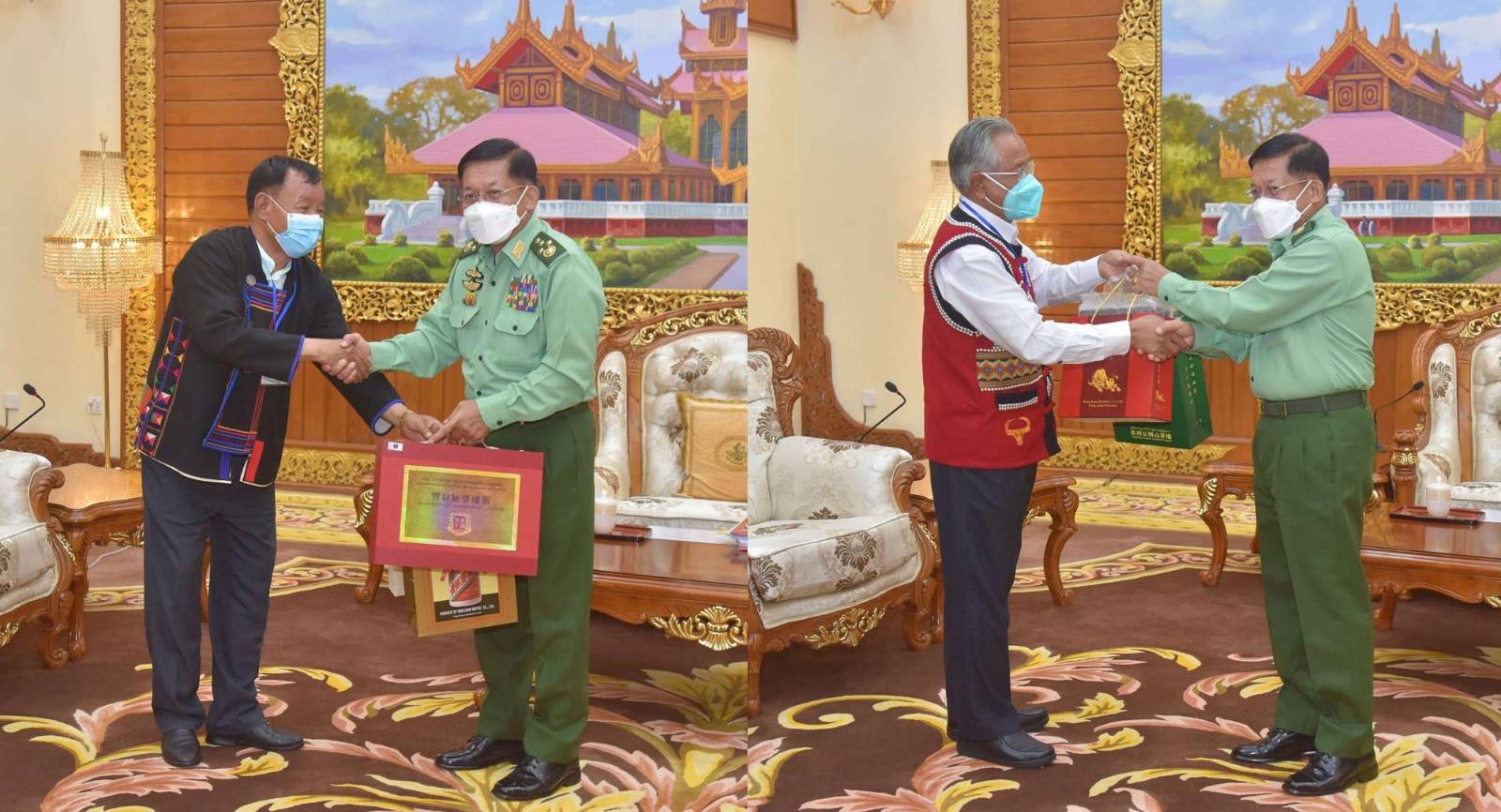Myanmar’s junta airstrike on a music concert inside Kachin Independence Army (KIA) territory in Hpakant Township on Sunday has drawn domestic and international condemnation but not from the armed groups that have held peace talks with the regime.
Ethnic armed organizations (EAOs), including the Karen National Union (KNU), Karenni National Progressive Party (KNPP) and the three-member Three Brotherhood Alliance, condemned the Kachin State air raids that killed more than 60 people, including civilians.
But 10 other EAOs, including the Restoration Council of Shan State (RCSS), United Wa State Army (UWSA) and National Democratic Alliance Army (NDAA), which have held talks with junta chief Min Aung Hlaing, remained tight-lipped.
Three junta jets dropped bombs on a concert to mark the 62nd anniversary of the founding of the KIO, the political wing of the KIA, in A-Nang Pa village on Sunday evening, killing KIO staff, ethnic Kachin artists and other civilians. Junta checkpoints denied many of the injured access to hospital treatment.
The junta denied targeting civilians and objected to statements from the United Nations and foreign embassies, including the US and Britain, condemning the air raid.
However, seven signatories to the 2015 Nationwide Ceasefire Agreement (NCA), including the RCSS, New Mon State Party, Karen National Union/Karen National Liberation Army Peace Council, Arakan Liberation Party, Democratic Karen Benevolent Army, Pa-O National Liberation Organization and three NCA non-signatories, including the UWSA, NDAA and Shan State Progress Party, have remained silent.

Analyst U Than Soe Naing said the silence from some groups cooperating with the junta is expected.
“As they are in talks with the junta, looking out for opportunities and regional interests, they won’t say anything that would displease the junta,” the observer said.
He added that for the majority of ethnic armed organizations, however, the Hpakant incident will draw together to counter the junta’s offensives and lead them to escalate the fight against the regime.
The 10 EAOs attended supposed peace talks in Naypyitaw in a move that was seen as giving the regime legitimacy.
None of the groups is fighting the regime, unlike the KNU, KIA, KNPP, Chin National Front and Arakan Army (AA).
Leaders of the seven NCA signatories also accepted honorary Wunna Kyaw Htin titles for their contributions to the country from Min Aung Hlaing.
RCSS leader Yawd Serk has criticized the civilian National Union Government (NUG) and its armed People’s Defense Forces (PDFs). He said the PDFs would turn into robbers if the NUG does not control them properly. He is now officially called Wunna Kyaw Htin Ywad Serk.
The groups have held two rounds of talks with Min Aung Hlaing, forging their ties with the regime.
In meetings with Min Aung Hlaing, the UWSA demanded statehood, the NDAA asked for autonomy and the SSPP asked for implementation of the 1947 Panglong Agreement and equality.
The agreement was signed in Panglong, southern Shan State, between General Aung San and the Shan, Kachin and Chin peoples on February 12, 1947. It accepted “full autonomy in internal administration for the frontier areas” and envisioned a federal union.
Min Aung Hlaing, who wants to win the presidency through a general election he plans to hold next year, has invited EAO leaders to run for election and pursue their demands in Naypyitaw’s parliament. He is also offering legislative independence for ethnic-minority groups’ parliaments.
The KNU, KNPP, AA, Ta’ang National Liberation Army, Myanmar National Democratic Alliance Army, NUG, Chin Joint Defense Committee, Chin Consultative Council and international organizations have issued statements condemning junta airstrikes.
The KIA said it would turn sorrow into strength and step up its revolution. The KNU, Myanmar’s oldest EAO, called for greater cooperation to defeat the dictatorship.
Around 23 officer cadets were killed when Myanmar’s military shelled the KIA headquarters near Laiza on November 19, 2014. The KIA officers’ academy was about 10km from the town.
UPDATE: Following the story published on Thursday, the UWSA and NDAA issued their delayed responses to the junta’s deadly air attack, offering their condolences to the KIO and to those killed and injured in the bombardment.

















